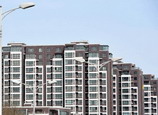
Shanghai Metro has released plans to increase penalties for fare-dodgers and people eating on trains.
The draft of the new Shanghai Rail Traffic Regulation is open for public comment until April 30.
If approved, all food and drinks will be banned from carriages and platforms, although no details on fines were offered.
Shanghai included a "no eating" proposal in its 2009 metro regulation, but it was never adopted owing to difficulties with implementation.
Zhang Shouqian, 29, who spends an average of 40 minutes on the metro every weekday morning, said the food ban is "too cruel" for those who don't have time for breakfast.
"They could catalogue the food," he suggested. "For example, spaghetti and instant noodles 'no', but 'yes' for simple snacks," he said.
"There are vending machines on station platforms selling drinks. Get rid of them if they want the ban," he added.
Snacking commuters are a familiar sight on trains, especially during morning rush hour.
"The smell makes me feel uncomfortable and I'm scared people may drop food or spill a drink on me every time they eat breakfast next to me because it's far too crowded," said Wu Yizhong, a regular Shanghai Metro commuter.
Wuhan in Hubei province became the first mainland city to ban eating and drinking on its subway last May. Violators face a fine of 200 yuan ($32).
The metro assigned 222 staff members to enforce the regulation.
Meanwhile, the proposed Shanghai Metro regulation states fare-dodgers will be fined between five and 10 times the price of the ticket. The harshest fine at the moment, according to the metro authority, is 55 yuan.
"The maximum fine is five times the most expensive fare in Shanghai, which is 11 yuan," said Lan Tian, a spokesman for Shanghai Metro's operation management center.
The subway authority will also have the right to hand turnstile jumpers over to police, according to the draft.
Bao Chenglin, deputy director of Xujiahui Station of the Shanghai urban rail and bus police, said each station has a police officer in case of disputes between freeloaders and staff.
The draft regulation also reports violations to the city's upcoming credit-rating database system in serious cases.
Zhou Guoxiong, a Shanghai legislator and Party chief of the city's economy and information commission, said violators are likely to find their credit damaged in future, making it harder to get a loan.
He said the database has been in the making for three years and the official launch is expected in June.
Shanghai Morning Post reported that people riding free cost the metro system about 10 million yuan a year.
An estimated 0.16 percent of the 6 million daily passengers never pay for tickets, while the percentage of freeloaders in Shanghai's large metro stations such as People's Square and Xujiahui reaches 2 to 3 percent, the newspaper reported.
Skateboarding, roller-skating and bicycles (including folding bikes) are also banned in the draft.
















 Exhibition marks 10th anniversary of Leslie Cheung's death
Exhibition marks 10th anniversary of Leslie Cheung's death


![]()
